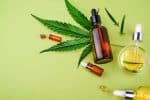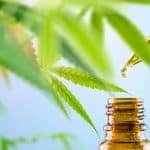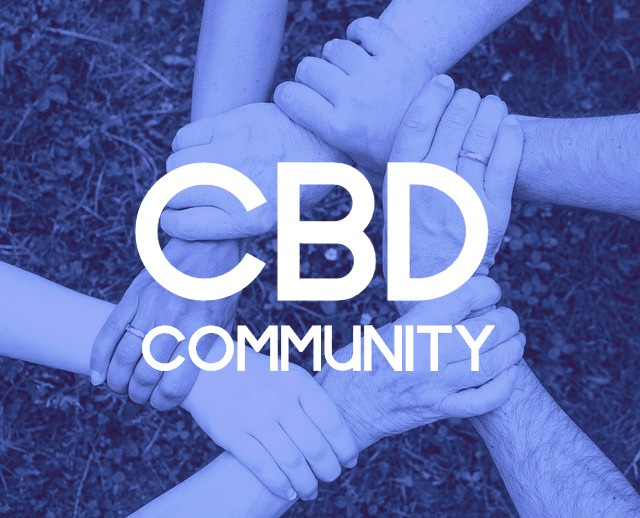Last updated on 13 July 2021
CBD distillate is a hemp extract with high CBD concentrations.
In recent times, consumers seem to show interest in trying out single molecules of the plant in a concentrated form, targeting to derive specific benefits.
Some of them even actively engage in (do it yourself) kitchen experiments to try and obtain an extract in the form, they prefer.
At the same time, there are several competing brands selling a range of different extracts, including CBD distillate, Isolate, full-spectrum, and broad-spectrum.
Not only are these complicated terms used for hemp-derived products confusing, but consuming them without understanding their pros and cons could be risky.
Therefore, this blog post aims to address all possible questions about CBD distillates. If you have more questions, take a moment to post them in the comment box below.
The cannabis plant, cannabinoids, terpenes – A quick recall
The Cannabis plant is known for its unparalleled versatility and vast diversity in its genetic constitution. It produces hundreds of cannabinoids and non-cannabinoid secondary molecules called terpenoids and flavonoids.
All these active phytochemicals interact with each other in a complex manner exhibiting multiple properties of therapeutic value.
Modern extraction techniques are applied to suppress/ heighten/ isolate single molecules, including psychoactive compounds or terpenes, to experience their distinctive properties.
CBD distillate is one such example where it contains the non-psychoactive compound CBD in high amounts.
Let us find out answers to some of the most frequently asked questions about CBD distillate.
1. What is a distillate?
A distillate is a purified product derived from a mixture of different compounds. Using the process of distillation, molecules having varying boiling points get separated into individual compounds.
If that sounds too technical, let us consider a simple example to help us readily understand.
We use distilled water for various purposes because it is free from impurities, ions, heavy metals, salt, etc. Industries including automobiles, cosmetics, laboratories, beverages prefer to use distilled water for their various manufacturing processes.
2. What is distillation?
A 2005 study1 illustrates that distillation is a widely used technique in chemical analysis for separating selected compounds from a matrix and constituting an index of purity. Distillation is used throughout the manufacturing industry to purify chemicals and products based on their boiling points and vaporization.
3. What is CBD distillate?
CBD distillate is a viscous liquid containing cannabidiol (CBD) in its refined form. It is free from terpenes, impurities, and other cannabinoids hence have no smell, taste, or flavor.
Extracting CBD from the cannabis plant involves six steps: Extraction, winterization, solvent recovery, decarboxylation, distillation, and isolation.
Therefore, distillation and isolation are the two post-extraction processes conducted to refine, purify and derive desired compounds (CBD) in their purest form.
As we discussed in the introduction, cannabis plants naturally contain hundreds of cannabinoids, terpenes, and flavonoids. Besides the beneficial compounds, all plants possess certain undesirable chemicals and toxins that are unfit for consumption.
A note from a 1993 study2 is mention-worthy here.
Every plant possesses physical and chemical-based defenses within the plant such as spines, thorns, prickles, stinging hair, toxins, repellent substances, and more. These function as a natural defense to protect themselves from herbivores, insects, etc.
In essence, the distillation process delivers CBD in its pure unadulterated form by separating it from other volatile materials.
4. How is CBD distillate made?
The crude hemp extract goes through a distillation process to remove the lipids, solvents, impurities, fertilizers, and pesticides.
Since there are different types of equipment (small to big), depending on the scale of production, the design of the distillation equipment might vary.
Subsequently, the impurities get filtered out separately. The refined CBD gets heated at a low temperature in the distillation apparatus.
The heat converts the oil extract (CBD) into vapor and collects it in the condenser vessel. The vaporized CBD is re-condensed back into liquid form to obtain CBD distillate.
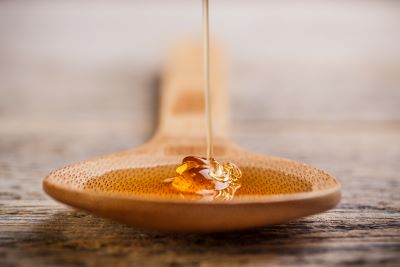
5. What is the consistency of CBD distillate? How does it look?
CBD distillate has a thick syrupy translucent texture that looks like honey. Its color could vary from transparent to brown, yellowish or golden. However, at room temperature, it looks more hardened as it gets crystallized.
6. What is the technology used in extracting distillates?
Three different types of distillation equipment are interchangeably engaged in this process. They are falling film, wiped film, and short path distillation.
However, short path distillation is the most widely used technology in CBD distillation. Here the product gets heated under a vacuum.
The superiority of this technology over the other methods is that the vaporized cannabinoids travel only a short distance between the evaporation vessel and the condenser. As CBD could get degraded when exposed to high temperatures, its traveling time within the apparatus is shortened.
7. What are the different types of CBD distillate?
Full-spectrum and Broad-spectrum are the main types of CBD distillate.
Full-spectrum CBD distillate: The complete profile of the hemp plant is replicated in a full spectrum CBD distillate product to retain its entourage effects. A full spectrum contains all the cannabinoids naturally present in the strain, including THC (as per the legal limits). Sometimes, they are also additionally enriched with terpenes.
Broad-spectrum CBD distillate: The only difference between full-spectrum and broad-spectrum is the THC content. THC gets altogether removed, but the other cannabinoids such as CBC, CBN, and terpenes are retained in a broad spectrum CBD distillate product.
Finally, once all the cannabinoids and secondary metabolites are removed, CBD undergoes a crystallization process that transforms CBD into small crystal molecules. These are called CBD isolates and are the purest form of cannabidiol with 99% purity.

8. How to use CBD distillate?
The process of distillation removes the aromatic compounds (the terpenes and flavonoids) from the extract. Hence, as mentioned above, CBD distillate has no smell, taste, or flavor. This versatility makes it convenient to apply CBD distillate in multiple consumption ways such as:
- orally in the form of tinctures
- vaping
- dabbing
- infused with food and drinks
- making edibles
- encapsulated into capsules
- supplements
9. Can I take CBD distillate sublingually?
We have understood that pure CBD distillate is a thick syrupy translucent texture. Therefore, at room temperature, it crystallizes and becomes hardened. In this form, it could be tough to handle/ dose orally.
However, they can be brought back to consumable form by placing them in a hot water bath for a few minutes.
Also, some brands add chemical agents to prevent the product from crystallizing.
10. Does CBD distillate cause a high?
Generally, CBD distillates consumed in micro/standard dosages do not cause a high.
However, type of strain, quality of product, quantity, drug interactions, route of administration are the other factors to be considered.
11. What is the difference between full-spectrum CBD oil and CBD distillate?
As discussed above, full-spectrum CBD means that the final product mirrors all the natural compounds, terpenes, and flavonoids of the plant to obtain the entourage effects.
Therefore, the objective of reserving the entourage effects in both the end products (CBD oil and CBD distillate) is the same. The differences occur in the potency of cannabinoids and the final consistency of the product.
CBD distillates contain high amounts of concentrated CBD (80-90%), and the consistency of the product is much thicker than oils.
Distillation is one of the main post-extraction processes to remove volatile substances and impurities from the extract to obtain CBD oil. Further, CBD oil contains carrier oils such as hemp oil, MCT oil, propylene glycol, or vegetable glycerine. CBD distillates do not contain carrier oils.
As a result, its bioavailability could be comparatively low but often improved by adding a fatty substance.
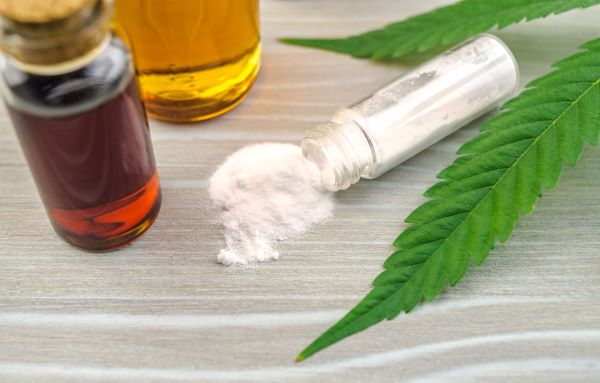
12. What is the difference between isolate and distillate?
Isolates are the purest form of a single cannabinoid, either be THC or CBD, with 99.9% purity.
Isolating is the next stage of the extraction process after distillation. After isolating/ separating all other cannabinoids from the distilled product, it undergoes a crystallizing process where CBD transforms into pure isolate crystals appearing as a white crystalline powder. They have no color, flavor, or aroma.
On the other hand, the distillation process offers the opportunity to obtain selected molecules with around 80% purity. Hence, distillates could contain traces of other cannabinoids. According to the legally permitted limits, CBD distillate can contain THC ≤ 1% in the USA, 0.3% in the EU, and 0.2% in the UK. Moreover, below a certain threshold, THC becomes non-traceable in the product.
13. How to add flavor to CBD Distillate?
One of the main advantages of short path distillation technology is that the cannabinoids, terpenes, and impurities get separately filtered out. In such a case, reintroducing terpenes to the distilled CBD becomes easy.
Several companies manufacture CBD distillate products in various flavors including lemon, mint, chocolate, etc.
On the other hand, you could also add your choice of flavor to CBD distillate manually.
- Bring the distillate back to oil consistency (as they crystallize and harden at room temperature) by warming it in low temperature
- To improve its bioavailability you need to add a fatty substance like coconut oil as a carrier.
- Infuse your favourite essential oil or flavour, give it a good mix.
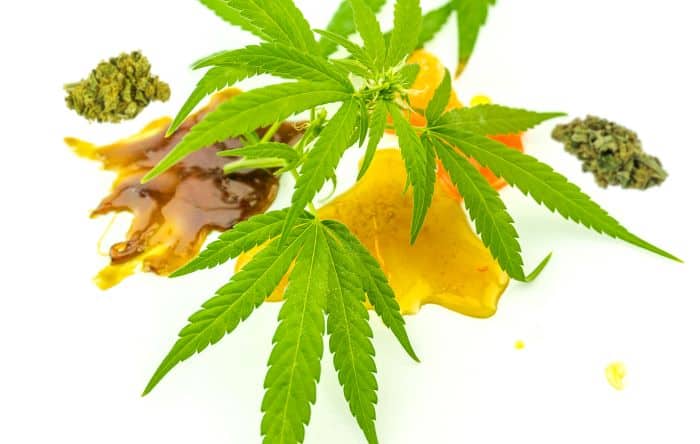
14. Difference between Cannabis Concentrates and CBD distillates
Cannabis concentrates are made from marijuana that contains high amounts of the psychoactive compound THC.
They come in different types, like crumble, budder, shatter, crystalline, dry sift, rosin, bubble hash, and more. Each of these comes in different consistencies and potencies.
There is very little research about the benefits and risks of using concentrates.
Reference from a 2017 study3 is noteworthy here. It elucidates that concentrates typically contain higher cannabinoid levels than the natural cannabis flower or bud.
They are made by extracting cannabinoids from the plant into a form with a much higher concentration than the original flower. For example, a THC concentrate could be at least four times more potent than a flower.
On the contrary, CBD distillate is a refined hemp extract product that contains a high amount of CBD.
15. What does the research say about CBD distillates or isolated compounds?
When nature has designed the cannabis plant with hundreds of cannabinoids, terpenes, flavonoids, and several other compounds, what is the point in reducing it to a single molecule?
A 2020 study4 points out that the fraction produced from steam distillation does not contain significant amounts of phytocannabinoids. Preliminary observations from the study indicate that antimicrobial and antibiofilm activity of hemp come mainly from terpenes such as myrcene, pinene, caryophyllene, etc, but not from significant levels of CBD.
The 2011 study5 focuses on the therapeutic properties of cannabis terpenoids: limonene, myrcene, linalool, nerolidol, β-caryophyllene, caryophyllene oxide, and phytol.
Some important takeaways from the study are:
- Although terpenes are flavor and fragrance components, they share a precursor with phytocannabinoids and display unique therapeutic effects. Also, they contribute to the entourage effects of cannabis-based extracts.
- Non-cannabinoid plant components could be a remedy to the intoxicating effects of THC, thereby increasing the overall therapeutic index of cannabis.
- Plants are better drugs than natural products isolated from them.
- Cannabis extracts demonstrated two or four times greater effects than isolated THC.
- The entourage effect in the versatile plant is a promising pharmacological treasure.
Another recent survey study from the Arizona state university compared the effectiveness of concentrates over herbal cannabis among 574 subjects. The result points out that 78% of respondents selected herbal cannabis over concentrates as the latter resulted in unwanted effects such as hangovers, paranoia, memory disruption, etc.
16. Can distillates be made only with CBD?
As businesses are inclined towards innovating and introducing new products to customers, they employ sophisticated extraction equipment and methods to extract different compounds in different forms.
The most striking advantage of the process of distillation is that it provides the convenience to isolate every single molecule of choice.
We can argue that this is especially possible with cannabis plants because it is as malleable as gold.
Therefore it is possible to distill any cannabinoid present in the marijuana or hemp plant including, CBD, THC, CBG, CBC, CBN, THCV, CBDA, and so on, into a concentrated or isolated form.
17. How to store CBD distillate?
Most CBD products are packaged in dark bottles to prevent degradation from heat/ light.
(a) Store them at room temperature.
(b) Since CBD distillates solidify at room temperature, it is easy to heat the bottle by placing it in hot water to melt the contents before consumption.
(c) While heating the CBD distillate, make sure not to overheat or expose the product to direct fire. It could degrade the quality of CBD.
(d) In rare cases, if you find any CBD distillate products in plastic containers, consider them as fake, sub-standard, or unsafe for consumption.
(e) Store them safely, away from children and pets.
18. What are the benefits of CBD distillate?
There is little scientific evidence to prove the health benefits of consuming CBD distillates. Or if consuming CBD in this particular form could improve any specific health condition?
CBD is well researched for its analgesic, antiemetic, anticonvulsant, and antipsychotic properties. But little do we know about the health effects of consuming single molecules that are more potent.
Therefore some general advantages of CBD distillate are:
- Users could keep track of what and how much they consume.
- People concerned about the varying levels of psychoactive cannabinoids in the full spectrum product can choose between broad-spectrum CBD distillate or isolates.
- CBD distillate is a versatile product that makes it possible to apply in a range of applications.
19. Can I give CBD distillate to my dog?
Administering CBD products to dogs/ cats is quite popular among pet owners.
However, making sure that the products are free from THC, harmful flavors, or additives is of utmost importance.
Although there is a limited number of studies to prove the efficacy of CBD in dogs for treating specific conditions, its safety profile is so far good. On the other hand, THC could have adverse effects on healthy dogs.
Moreover, cannabinoids are more concentrated and potent in distillates. It is best to consult your veterinarian before administering any cannabis-based product to your pets.
20. Risks of using concentrated CBD
The CBD market remains unregulated by the FDA. Nevertheless, it is currently working towards addressing some of the major concerns. They are:
- sedative effects of CBD,
- long term use,
- transdermal penetration,
- the outcome of different routes of administration of CBD,
- how the body absorbs and metabolizes CBD,
- safety profile
- safety on pets, etc
- How are full-spectrum and broad-spectrum derived and processed?
- What is the content of such extracts compared to CBD isolate products?
Therefore, it is difficult to point out the risks or benefits of consuming CBD distillate because there are no standard guidelines for dosage and frequency.
However, consumers must be generally cautious while buying CBD products online/ retail and refrain from purchasing counterfeit products, misleading labels, and low-quality products.
References
- J.D. Green, DISTILLATION, Editor(s): Paul Worsfold, Alan Townshend, Colin Poole, Encyclopedia of Analytical Science (Second Edition), Elsevier,2005, Pages 281-285, ISBN 9780123693976,https://doi.org/10.1016/B0-12-369397-7/00107-2. [↩]
- J.B. Harborne, 3 –Plant Toxins and Their Effects on Animals, Editor(s): J.B. Harborne, Introduction to Ecological Biochemistry (Fourth Edition), Academic Press,1993, Pages 71-103, ISBN 9780080918587, https://doi.org/10.1016/B978-0-08-091858-7.50007-3. [↩]
- Cinnamon Bidwell L, YorkWilliams SL, Mueller RL, Bryan AD, Hutchison KE. Exploring cannabis concentrates on the legal market: User profiles, product strength, and health-related outcomes. Addict Behav Rep. 2018;8:102-106. Published 2018 Aug 17. doi:10.1016/j.abrep.2018.08.004 [↩]
- Baswan SM, Klosner AE, Glynn K, et al. Therapeutic Potential of Cannabidiol (CBD) for Skin Health and Disorders. Clin Cosmet Investig Dermatol. 2020;13:927-942. Published 2020 Dec 8. doi:10.2147/CCID.S286411 [↩]
- Russo EB. Taming THC: potential cannabis synergy and phytocannabinoid-terpenoid entourage effects. Br J Pharmacol. 2011;163(7):1344-1364. doi:10.1111/j.1476-5381.2011.01238.x [↩]
Author
With close to two decades of successful stint in the Media industry, I felt I was surely missing a piece in my life puzzle. I took a break and set out to seek the purpose of my life. I travelled, lived out of a suitcase, let things flow into life without resisting, and after five challenging years, I found my rhythm. I love to write about Cannabis and Health and try my best to simplify esoteric concepts into simple ideas for life.

